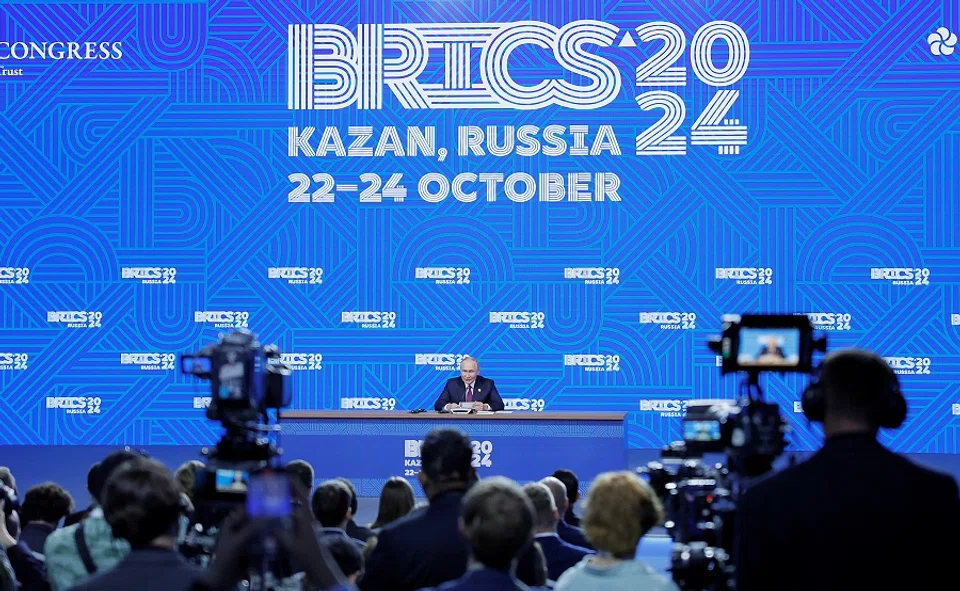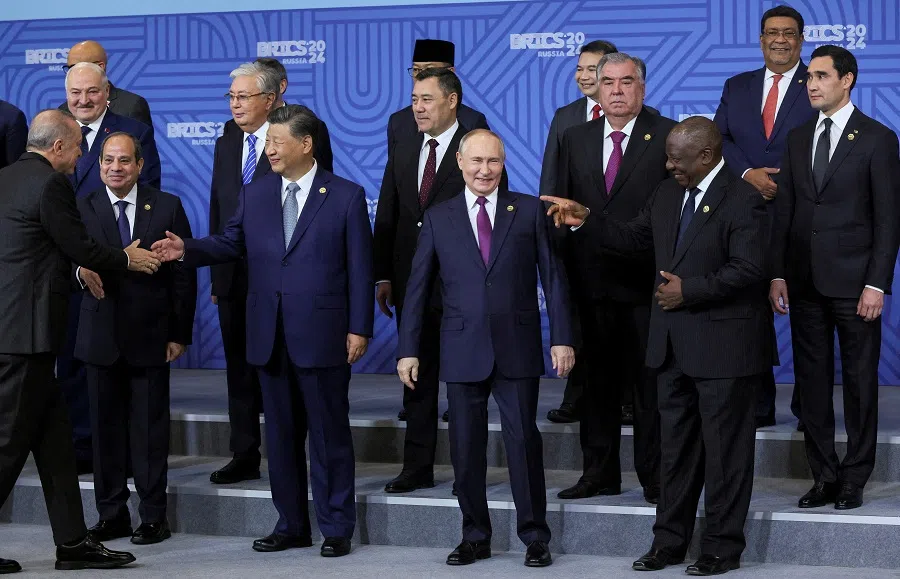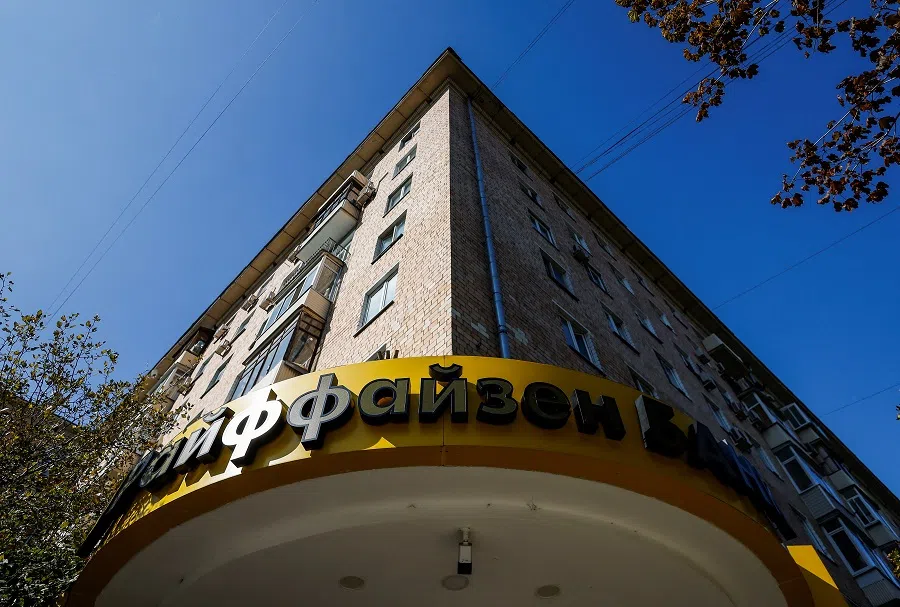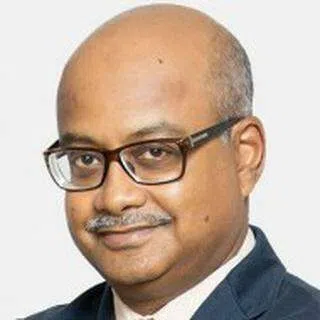BRICS summit in Kazan: A turning point for the global south
ISAS academic Amitendu Palit notes that with four major Southeast Asian countries as partners, the BRICS is on its way to becoming a representative bloc from the global south with multiple regional identities. Greater economic integration through the launch of BRICS Pay will also help Russia and Iran increase their presence in the global economy.

The 16th annual BRICS summit held in Kazan, Russia, in October, marked some important advances for the BRICS bloc.
Coming at a time when military conflicts are rising, global geopolitics getting heavily complicated, and the global rules-based order led by the US and the West unable to restore stability, the BRICS can be an effective alternative for global peace and prosperity, particularly for the global south. The Kazan summit saw the group taking some initial steps in this regard.
New partners and a BRICS+ framework
The original BRICS members — Brazil, Russia, India, China and South Africa — had earlier added Egypt, Ethiopia, Iran, Saudi Arabia and the United Arab Emirates (UAE) to the group. The Kazan summit further expanded the BRICS network by including partner countries. These partner countries, while not being full members of BRICS, join it through a BRICS+ arrangement.
Thirteen countries have become BRICS partners. These include Algeria, Belarus, Bolivia, Cuba, Indonesia, Kazakhstan, Malaysia, Nigeria, Thailand, Turkey, Uganda, Uzbekistan and Vietnam.
With four major Southeast Asian countries as partners, the BRICS is on its way to becoming a representative bloc from the global south with multiple regional identities.
The new partners demonstrate the BRICS’s effort to secure strategic outreach across a wide range of the global south. Apart from Central Asia (Belarus, Kazakhstan and Uzbekistan), Africa (Algeria, Nigeria, Uganda), Latin America (Bolivia, Cuba) and Europe (Turkey), four Southeast Asian countries have become BRICS partners. These are Indonesia, Malaysia, Thailand and Vietnam. All four, apart from being ASEAN states, are also members of the US-led 14-member Indo-Pacific Economic Framework (IPEF), which also includes India. Malaysia has already applied for full membership of the BRICS and others might also follow.

The partners help BRICS in gathering identities both as Indo-Pacific and Southeast Asian groupings. This is significant as till now the geographical tilt of the BRICS was more towards Africa, Latin America, Central Asia and the Middle East, apart from China and India.
With four major Southeast Asian countries as partners, the BRICS is on its way to becoming a representative bloc from the global south with multiple regional identities. This increases its strategic heft and global acceptance.
BRICS Pay and local currency trade
A conventionally structured Free Trade Agreement (FTA) among the BRICS members was always a difficult idea. This is because there is no geographical contiguity among the members. Nonetheless, the BRICS has been working on greater economic integration among its members. This was demonstrated through the launch of the BRICS Pay at Kazan.
Among existing BRICS members, two of the biggest beneficiaries of the BRICS Pay mechanism will be Russia and Iran. Both countries are now currently sanctioned against using SWIFT.
BRICS Pay is a cross-border financial information messaging mechanism. Conceptually it is similar to the SWIFT (Society for Worldwide Interbank Financial Telecommunication) — the most popular global financial messaging system — promoted by the West and Europe. China and India also have identical systems, the Cross-Border Inter-Bank Payment System (CIPS) and United Payments Interface (UPI), respectively. These mechanisms allow banks and financial institutions subscribing to these systems to exchange confidential information among each other for facilitating cross-border financial payments.
Among existing BRICS members, two of the biggest beneficiaries of the BRICS Pay mechanism will be Russia and Iran. Both countries are now currently sanctioned against using SWIFT. Among the BRICS partners, Cuba and Uganda are also prohibited from using SWIFT.
The BRICS Pay will allow these countries more options for engaging in global financial transactions and diversify their trade and investment options. As a corollary to this development, Russia and Iran’s presence in the global economy will also increase. Indeed, this can be taken as a strategic victory for both countries.

The salience of BRICS Pay should also be looked at in conjunction with the effort by BRICS to overcome food shortages faced by several countries of the world, particularly the global south. This is visible from the announcement of a BRICS grain exchange. Again, this was a Russian initiative that went down well with the rest of the group.
Along with BRICS Pay and the grain exchange, the idea of making more efforts to settle mutual trade in local currencies among members, is a welcome development. When brought into force, the latter will alleviate foreign exchange shortages that many countries in the global south are facing due to the high value of the US dollar and are therefore stressed to invoice their exports and imports in dollars.
China-India border agreement
The Chinese President Xi Jinping and the Indian Prime Minister Narendra Modi met bilaterally at the summit. This was their first bilateral meeting in five years. They announced an end to their military standoff on the border along with a complete disengagement of troops.
The China-India reset is a significantly welcome development at a time for the world at a time when Western efforts to broker peace in the Middle East and Central Asia are proving elusive.
As two founding BRICS members and also the world’s largest global economies, the announcement marked the ability of the BRICS to move forward purposefully on unresolved issues between members through mutual discussions. The China-India reset is a significantly welcome development at a time for the world at a time when Western efforts to broker peace in the Middle East and Central Asia are proving elusive.
The last word
The 16th BRICS Summit was in many ways a landmark summit. With several countries joining the bloc as partners in a BRICS+ framework, the BRICS has begun displaying the emerging dimensions of a rules-based framework for the global south. Its growing strategic clout is a natural result of its geographical expansion.
It has also begun decisively putting in place mechanisms for greater economic integration among its members. These, over time, will mature into robust systems and provide the developing world and the global south more choices for engaging in trade and commerce. Finally, with major BRICS members like India and China resolving their military standoffs, the BRICS sends a strong signal in its ability to safeguard global stability.



![[Big read] When the Arctic opens, what happens to Singapore?](https://cassette.sphdigital.com.sg/image/thinkchina/da65edebca34645c711c55e83e9877109b3c53847ebb1305573974651df1d13a)
![[Video] George Yeo: America’s deep pain — and why China won’t colonise](https://cassette.sphdigital.com.sg/image/thinkchina/15083e45d96c12390bdea6af2daf19fd9fcd875aa44a0f92796f34e3dad561cc)
